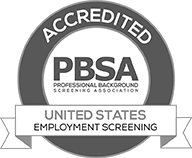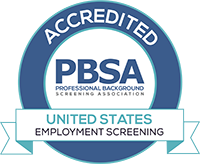BLOG
Many Pennsylvania Criminal Records Could Be Sealed
January 28, 2020
Pennsylvania Governor Tom Wolf signed a bill that makes certain types of criminal records eligible for expungement.
The Clean Slate Bill
In 2018, Pennsylvania legislators passed The Clean Slate Bill. It was created to help people with certain types of criminal records find employment and housing. Governor Wolf spoke in favor of this initiative. He said: “I am proud to sign this legislation, which will make it easier for those who have interacted with the justice system to reduce the stigma they face when looking for employment and housing.”
The bill established guidelines for residents to file a petition to “block disclosure” of their criminal records. If a request is approved, then the person’s records will no longer be available to landlords, employers or other public organizations. They would still be available to criminal justice and government agencies.
Only certain types of convictions can be blocked. They include misdemeanors that resulted in a maximum of 5 years of imprisonment and were not violent or sexual offenses. To be eligible, the person must not have been convicted of any crime in the last ten years and paid all fees associated with their sentence.
Act 56
A second part of the Clean Slate Bill, Act 56, went into effect on June 28, 2019. It calls for criminal records to be sealed under specific circumstances. For example, state and local police must remove notations of arrests, indictments and details about criminal proceedings before releasing records to an individual or non-criminal justice agency if:
· Three years have passed since the arrest.
· No conviction occurred.
· There are no pending charges.
Act 56 also limits access to criminal records if:
· A conviction was a misdemeanor of the second degree, third degree or punishable by imprisonment for no more than 2 years if the person has been “free for 10 years from conviction for any offense punishable by imprisonment of one or more years and if completion of each court-ordered financial obligation of the sentence has occurred.”
· Charges resulted in a disposition other than a conviction.
· Ten years passed since a conviction for a summary offense if all financial obligations of the sentence have also been completed.
Act 56 of the Clean Slate Bill was created to:
· Reduce the rate of recidivism.
· Provide “hope” and prevent hardships for people who have criminal histories but are attempting to rehabilitate their lives.
· Save the Commonwealth money by reducing the amount of time spent on the administration of criminal justice.
Second Chance Laws
Pennsylvania is one of many states to pass legislation that helps people with minor or outdated criminal records. Examples include laws that:
· Prohibit employers from asking about convictions on job applications.
· Require employers to individually assess criminal offenses.
· Create easier methods to seal certain types of convictions.
· Provide other resources to help people re-enter society.
Consult with your legal counsel to ensure you are compliant with second chance and other laws where you operate.
Running Background Checks
Every organization is responsible for performing due diligence and running comprehensive background checks on candidates, volunteers, employees and contractors. While many offenses are minor and would not disqualify a job seeker, hiring someone who has a violent or sexual criminal history could put your business, customers and employees at risk. Criminal background checks provide the details you need to make informed decisions and create a safe work environment.
When you’re ready to start the background screening process, please contact us. We make efforts to keep up with relevant state laws and every member of our processing team earns their FCRA certification. We’re available to assist you Monday through Friday from 5am to 6pm PT.







